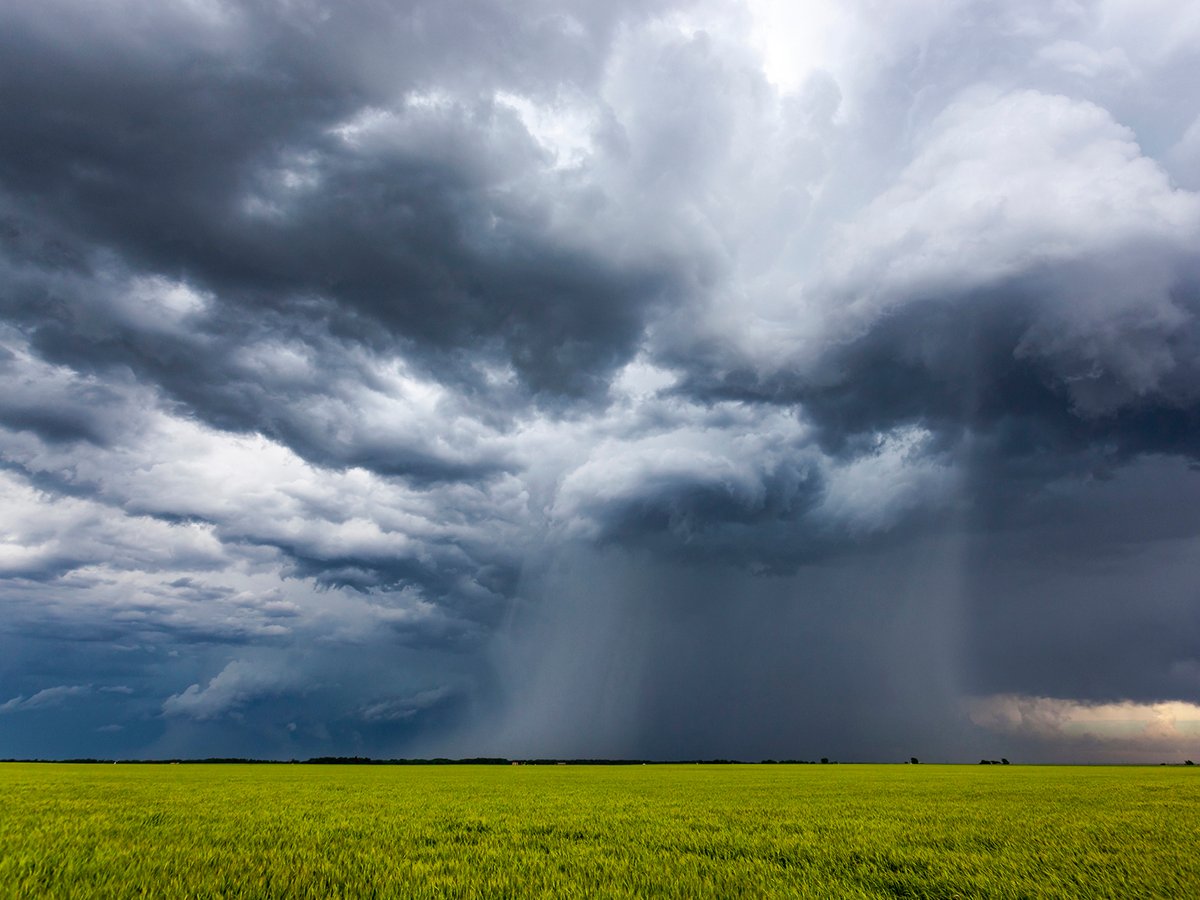Opposition to proposed route | Landowners also want compensation for the ‘forced sale of land’
After months in dormancy, a controversial transmission line in Manitoba will soon come out of hibernation.
Manitoba’s Clean Environment Commission will hold public hearings on Bipole III, a high voltage transmission line, from Oct. 1 until the third week of November.
A five-person panel will listen to opponents and proponents of the contentious project at hearings in Winnipeg and northern and rural Manitoba before making recommendations to the provincial government.
The line is contentious because the government is forcing Manitoba Hydro, the provincial crown utility, to build the line on a circuitous route from northern Manitoba to Winnipeg, instead of a direct route on the east side of Lake Winnipeg.
Read Also

Extreme rain increases as planet warms
In this issue, we are going to wrap up our look at extreme rainfall by examining the different weather patterns that tend to be associated with these rainfall events.
Thousands of Manitobans have participated in demonstrations, wrote letters to the editor and signed online petitions over the last few years to protest the proposed route, which will run to the Saskatchewan border and then cut back across prime agricultural land in southern Manitoba.
The NDP government and environmental groups have argued that such a route will preserve an intact boreal forest on the east side of Lake Winnipeg. However, Cal Penner, who farms near Elm Creek, Man., can’t comprehend the economics of the proposed route, which cuts across his property. It will cost an estimated $3.2 billion to build the transmission line on the proposed route. In comparison, a line east of Lake Winnipeg would be $1 billion cheaper.
The line will run across Penner’s farmland for 1.2 kilometres. He wants fair compensation for the long-term inconvenience of such an intrusion.
“This is a forced sale of land,” he said. “I understand the common good, or the public good … but if I’m supposed to share my land with the public … then I think I should be compensated better than what they’re offering.”
An Alberta company representing Manitoba Hydro has contacted Penner about compensation for an easement across his land, but he hasn’t signed any paperwork and is in no hurry to do so.
The Bipole III coalition, which comprises landowners, engineers and former Manitoba Hydro executives who oppose the propose route, will represent the interests of farmers at the public hearings.
Karen Friesen, coalition president and a farmer near Niverville, Man., said the group is bringing in experts to testify at the hearings, including Jim Collinson, a Canadian environmental consultant, assistant deputy minister in Manitoba and former president of the UNESCO world heritage committee.
Friesen said the Clean Environment Commission can’t dictate public policy. It can only make recommendations to government.
The project might still go ahead and the line might still cut across her 1,800 acre farm, but she hopes all Manitobans, and not just affected landowners, pay attention to the hearings.
“(It’s) coming through the best agronomic growing area in our province … (but) there are a lot of reasons, not just agriculture, that people need to pay attention here. This is something that will affect all Manitobans.”
For more information on the Bipole III public hearings, including the schedule, please visit the Clean Environment Commission website at www.cecmanitoba.ca.















